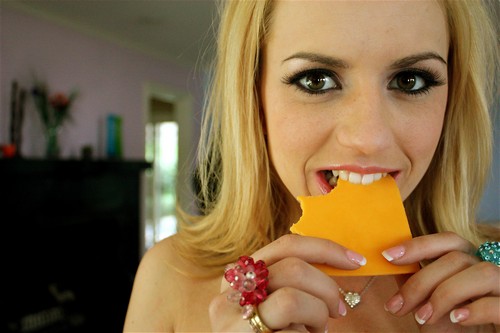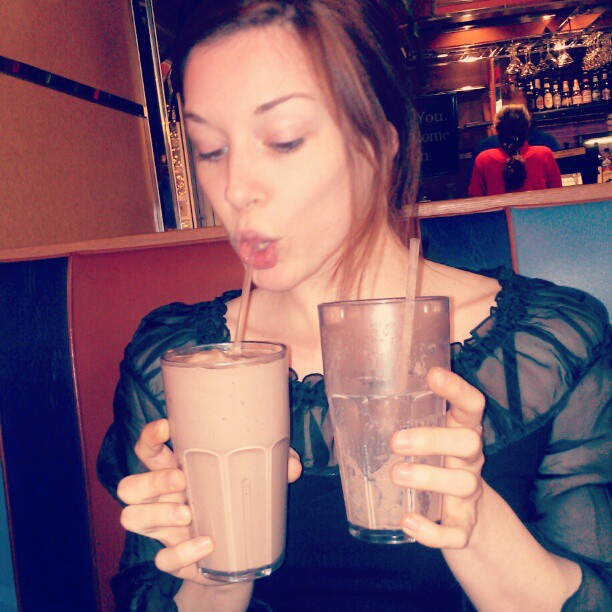Porn stars on Vine: they’re just like us
By Leah Pickett
Porn star Lexi Belle shares her personal life on Twitter and Vine. Twitter/Lexi Belle
1
/ 3

Porn star Lexi Belle shares her personal life on Twitter and Vine. Twitter/Lexi Belle
1
/ 3
Porn stars on Vine: they’re just like us
By Leah Pickett
WBEZ brings you fact-based news and information.
Sign up for our newsletters
to stay up to date on the stories that matter.

In the olden days of pornography, the lives of the performers were mostly limited to what we saw acted out on film.
Of course, rabid fans knew who Linda Lovelace was hooking up with offscreen and whether Jenna Jameson actually dated women in real life; but on the whole, porn stars existed as larger-than-life projections of what their audiences wanted them to be.
They played to the fantasies of millions, then disappeared back into their private lives. Under the guise of their erotic fake names and strategically-tailored public personas, they could expose every inch of themselves, yet still remain completely unknowable as human beings.
That is, until social media came along and changed everything.
While Facebook continues to lock out porn stars (their “no nudity” policy extends to Instagram as well), Twitter has welomed them with open arms. Not only can these performers tweet nude photos and other NSFW material to their personal accounts, but they can also use Vine—Twitter’s six-second video sharing app, the moving picture version of Instagram—to create mini-movies of themselves for the world to see.
However, not all of these Vines are as titillating or overtly sexual as one might think. In fact, many of them are downright mundane: driving in traffic, cooking dinner, spinning around in parking lots (fun fact: Lexi Belle and I have the same Ikea office chair) and other activities that aren’t unlike anything you, your sister or your best friend might capture on a given day.
This disarming display of normalcy is what makes these videos so remarkable. Porn stars are pulling back the curtain on their private lives and showing viewers that despite their “unique” career paths, they’re really just like us.

For example, porn actress and activist Stoya wrote a wonderful piece for Vice a couple of weeks ago that defends this cultural shift, saying that social media outlets like Twitter, Tumblr and Vine have been enormously helpful in allowing viewers to see porn stars as more than just sexual objects:
“Porn stars can definitely be quirky and are probably more sexually liberated than the average adult, but we aren’t so far removed from humanity that we’re above concerns like bills and laundry,” Stoya writes, “To pretend that we are underestimates the intelligence of people who are interested in the lives of porn stars or what goes on behind the scenes of the adult film industry.”
Dylan Ryan is another porn actress who defends the right of women to be sexually liberated in whichever ways feel right for them, even going as far as to say that the choice of an adult film career can be both “feminist” and “empowering.”
“I am the agent of my own experience,” Ryan told the Huffington Post, “One of the things that people often think about porn is that the women who are performing in it are distant from their bodies or they’re there because they’re getting paid or because they’ve been sexually abused or because they have a very unhealthy sense of self. And while those stereotypes are based in a lot of realities that exist…that’s not the experience of every performer, and that’s not been my experience.”
Perhaps one can be a feminist and a porn star, a kinky exibitionist and a down-home girl who likes to Vine videos of her cat jumping onto a beanbag chair. All of us are full of contradictions, some of them surprising and often endearing: that’s what makes us human.
Does seeing photos and videos of Stoya goofing off with her friends or Lexi shopping for Nutella at the grocery store strip away their fantasy, or make them even more interesting—and by extension, even more sexy and appealing—to porn fans and naysayers alike?
Leave me your take on the humanization of porn stars (and whether this has been a positive or negative side effect of our 2013 “insta-share” culture) in the comments section below.
Leah Pickett writes about popular culture for WBEZ. Follow her on Facebook, Twitter or Tumblr.

